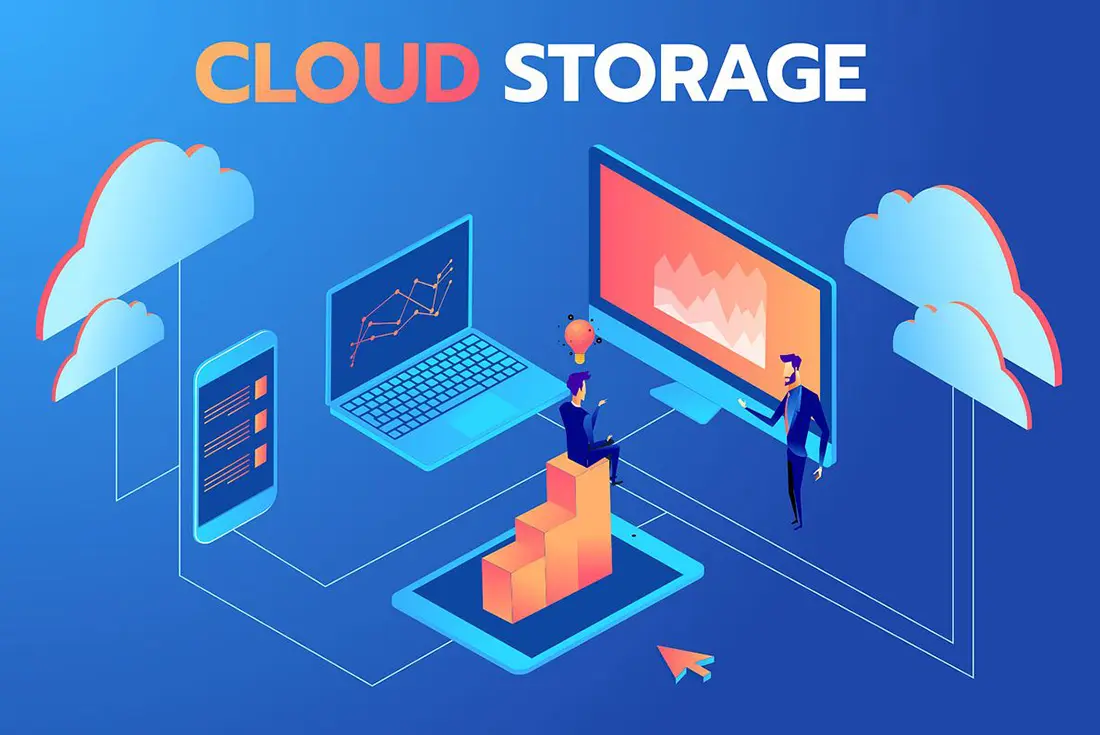
15 Jul Public Cloud vs. Private Cloud Storage: Which is Right for Your Business?
Businesses increasingly turn to cloud storage to house their valuable data and applications. Cloud storage offers numerous benefits, including scalability, cost efficiency, and accessibility. However, not all cloud storage solutions are created equal. The two primary models, public and private cloud storage, each come with distinct advantages and considerations.
In this article, we’ll explore the key differences between public and private cloud storage, helping you determine which option best meets your business needs.
What is Public Cloud Storage?
Public cloud storage is a model where a third-party provider owns and operates the infrastructure, making storage resources available to multiple users over the Internet. This model offers numerous benefits:
- Public cloud storage can easily scale up or down to accommodate your changing storage needs.
- It typically operates on a pay-as-you-go model, eliminating the need for large upfront investments in hardware and infrastructure.
- Public cloud providers offer intuitive interfaces and tools, making it easy to manage and access your data.
Popular public cloud storage providers include Amazon S3, Google Cloud Storage, and Microsoft Azure Blob Storage.
What is Private Cloud Storage?
Private cloud storage, on the other hand, is a dedicated environment used exclusively by a single organization. It can be deployed on-premises within your own data center or hosted by a third-party provider. Private cloud storage offers distinct advantages, such as:
- It provides greater control over your data and allows for stricter security measures tailored to your specific needs.
- You have full control over the configuration and management of your private cloud environment, enabling you to optimize it for your specific workloads and applications.
- Private clouds are often preferred for businesses operating in highly regulated industries, as they offer greater flexibility in meeting compliance requirements.
Examples of private cloud storage solutions include VMware vSphere, Microsoft Azure Stack, and OpenStack.
Key Differences Between Public and Private Cloud Storage
While both public and private cloud storage offer businesses a way to store and manage their data in the cloud, they differ significantly in terms of cost, scalability, security, control, customization, compliance, and ease of use. Understanding these key differences is crucial for deciding which model best suits your business needs.
| Feature | Public Cloud Storage | Private Cloud Storage |
| Cost | Pay-as-you-go model, generally more cost-effective for smaller businesses | Higher upfront costs for infrastructure, but potentially more cost-effective at scale |
| Scalability | Highly scalable, can easily adapt to changing needs | Scalability depends on the capacity of your infrastructure or provider’s resources |
| Security | Shared responsibility between provider and user, robust security measures implemented by providers | Greater control over security measures, customizable to your specific requirements |
| Control | Limited control over infrastructure and customization options | Full control over infrastructure and configuration |
| Customization | Limited customization options | Highly customizable to meet specific business needs |
| Compliance | Can help meet compliance requirements, but may not offer the same level of flexibility as private clouds | Greater flexibility in meeting compliance requirements due to enhanced control |
| Ease of use | Generally easier to use and manage, with intuitive interfaces and tools provided by providers | May require more technical expertise to manage and maintain, especially for on-premises deployments |
Partnering with Downtown Computer Services for Your Cloud Storage Journey
Navigating the complexities of cloud storage, whether public or private, is not so easy. That’s where Downtown Computer Services, your trusted partner in cloud computing in Fort Lauderdale, comes in. We offer comprehensive services to help you harness the power of the cloud while ensuring your data remains secure.
Our experienced team of IT professionals can guide you through the entire process with the following services:
- We assess your business needs and recommend the right cloud storage solution.
- We seamlessly migrate your data and applications to the cloud.
- We implement robust security measures to protect your valuable data.
- We provide comprehensive training and support to empower your team.
- We understand that every business is unique, and we tailor our services to meet your specific requirements.
Whether you are considering a public cloud platform for its scalability and cost-effectiveness or a private cloud for enhanced security and control, we have the expertise to help you make an informed decision.
If you are looking for a reliable and experienced partner to help you transition to the cloud, look no further than Downtown Computer Services. Our expertise in cloud computing in Fort Lauderdale, combined with our commitment to customer satisfaction, makes us the ideal choice for businesses seeking a seamless and secure cloud storage experience. Call us now: (954) 524 9002.
Which is Right for Your Business?
The choice between public and private cloud storage depends on your business needs and priorities. Consider actors like your budget, data sensitivity, data protection regulations, and other factors.
Budget
If cost is a major concern, public cloud storage may be a more attractive option. However, for larger businesses with significant storage needs, private cloud storage can become more cost-effective in the long run.
Data Sensitivity
Data sensitivity refers to the level of confidentiality or criticality associated with specific types of information. If you handle highly sensitive data, such as personal health information (PHI), financial data, or trade secrets, a private cloud may be a better choice due to its enhanced security and control. This is because private clouds offer greater isolation from other users and can be tailored to meet specific regulatory compliance requirements.
(Regulatory Requirements
Certain industries have strict data protection regulations that businesses must adhere to. If your business operates in such an industry, a private cloud may be a more suitable option due to its greater flexibility in meeting compliance requirements.
Technical Expertise
If you have a dedicated IT team with the expertise to manage your cloud infrastructure, a private cloud may be a viable option. However, if you lack in-house expertise, a public cloud might be a more manageable choice.
Business Needs
Assess your business needs and priorities to determine which type of cloud storage aligns best with your goals. Consider scalability, customization, performance, and disaster recovery requirements.
Hybrid Cloud Storage: The Best of Both Worlds?
For businesses seeking a balance between cost-efficiency, scalability, security, and control, a hybrid cloud storage solution might be the ideal choice. Hybrid cloud combines the best of both worlds, allowing you to leverage public cloud storage for less sensitive data or non-critical workloads while keeping your most sensitive data secure in a private cloud environment. This approach offers greater flexibility and cost optimization while maintaining high data security.
Conclusion
Choosing the right cloud storage solution for your business is a critical decision that can significantly impact your operations, data security, and bottom line. By understanding the key differences between public and private cloud storage and carefully evaluating your business needs, you can make an informed choice that empowers your business to thrive in the digital age.
Need help navigating the complexities of cloud storage and cloud computing Fort Lauderdale? Contact Downtown Computer Services for expert guidance and support in selecting and implementing the ideal cloud storage solution for your business. Dial: (954) 524 9002.
Key Takeaways
- Cloud storage offers businesses scalable, cost-effective, and accessible solutions for storing and managing their data.
- Public and private cloud storage differ in cost, scalability, security, control, customization, compliance, and ease of use.
- Businesses should consider budget, data sensitivity, regulatory requirements, technical expertise, and specific business needs when choosing between public, private, or hybrid cloud storage solutions.
Check out other relevant news
- How Easy-to-Use Hacking Tools Are Fueling Cybercrime
- Cryptocurrency Security for Small Businesses: Protecting Your Wallet
- The Infostealer Epidemic: Protecting Your Business from the Latest Wave of Cyberattacks
- The Identity Crisis: How Compromised Credentials Can Cripple Your Business
- Beyond the Brick and Mortar: Building Your Online Storefront with Digital Marketing
